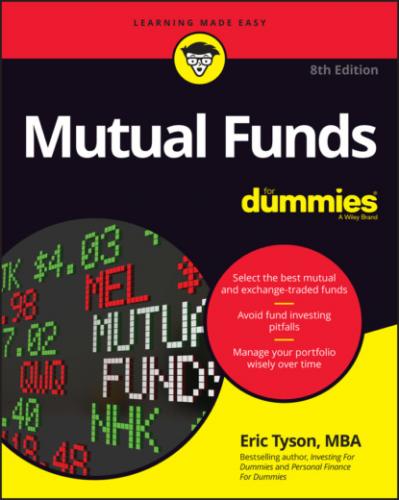Individual stocks offer less likelihood of diversification. Unless you have tens of thousands of dollars to invest in dozens of different securities, you probably can’t afford to develop a diversified portfolio. For example, when investing in stocks, you should hold stock in companies belonging to different industries, in different companies within an industry, and so on. Not properly diversifying adds to the risk of losing your shirt.
Individual stocks bring more accounting and bookkeeping chores. When you invest in individual securities outside retirement accounts, you must keep track of your purchase and dividend history (if you reinvest them). Every time you sell a specific security, you must report that transaction on your tax return.Even if you pay someone else to complete your tax return, you still have the hassle of keeping track of transactions. (On the plus side, however, you control selling decisions with individual securities; with funds, managers who trade can lead to capital gains distributions for you. As I discuss in Chapter 10, you can select mutual and exchange-traded funds that are tax friendly for your situation, including funds that are managed, so as to minimize or even eliminate capital gains distributions.)
Understand the psychology of selecting stocks
Some folks just don’t, won’t, or can’t enjoy having all their money tied up in mutual and exchange-traded funds. Some people say that funds are, well, kind of boring. It’s true that following the trials, tribulations, successes, and failures of a favorite company can provide you plenty of excitement (sometimes more than you want). A fund, on the other hand, is a little more abstract. You pour money into it and don’t have specific corporate dramas to follow.
Over the years, among investors who prefer to invest their portfolios in individual securities, I’ve noticed some common characteristics:
The boaster: You enjoy going to parties and telling of your successes in the stock market (but conveniently ignore your mistakes). Although the thought has never (hopefully) crossed your mind of sending copies of a brokerage statement to friends and relatives, you’ve been known on more than a few occasions to offer unsolicited stock tips and investment advice.
The controller: You hate delegating jobs to others, especially important ones, because no one does as good a job as you do. Investing much or all of your money in funds and leaving all the investment decisions to the fund manager won’t make you a happy camper. You may also believe that you can sidestep a market slide and get back in before prices skyrocket.
The free spirit, also known as you only live once: You’re the type who says, “I don’t care if there are trillions invested in funds.” You like to be just a little bit different and independent. And you’d like to have the opportunity to hit it big.
Picking Your Own Stocks and Bonds
Attempting to build an investment program around a handful of individual securities is, for all but the most exceptional investors, a fool’s errand…. Specific stock bets should be made, if at all, in small portions, and more for the excitement of the game than for the profit.
Yes, Bogle was the founder and former CEO of a large mutual and exchange-traded fund company, Vanguard. But, no, his comments aren’t self-serving: Vanguard also operates a discount brokerage company that handles individual securities trades for customers who want to do them.
SHOULD YOU JOIN AN INVESTMENT CLUB?
Investment clubs are a little bit like having your own hands-on mutual fund. Each club member chips in some money. Then the group gets together for periodic meetings to discuss stocks and to make investment decisions. (Although investment clubs could, of course, select other investments, such as bonds, most clubs choose stocks.)
These groups can be valuable as an educational forum if you utilize good information sources. If the group members are somewhat clueless and the meetings are rambling, these groups can end up degenerating into the blind leading the blind.
Investment clubs may have social or hobby value (which are most clubs’ major benefits), but they can hurt your checkbook more than they help. Consider the following:
The members of investment clubs are part-time amateurs. You could end up making some poor decisions and losing money (or not making nearly as much as you would if you’d been in some good mutual funds).
It’s highly unlikely that everyone in the group is in the same tax situation. Thus, the club’s investments may work for some members’ tax situations but not for others’.
Beware of stockbrokers (and others trolling for prospective clients) who’ve been known to participate in investment clubs and volunteer as leaders. Although their participation may be harmless, more often than not, these brokers have a hidden agenda to reel in new business clients.
Consider forming a financial reading club and discussion group rather than an investment club. You can get together and discuss financial periodicals, books, and investment strategies. This way, you can advance your level of financial knowledge; find out about new resources from others; and enjoy the fun, camaraderie, and other benefits that come from doing things in a group.
Better yet, join a bowling league or a softball team and leave the investing to fund managers!
In my experience, more than a few otherwise smart, fun-loving people choose to invest in individual securities because they think that they’re smarter or luckier than the rest. If you’re like most people, I can safely say that, in the long run, your individually selected stocks and bonds won’t outperform those of a full-time
